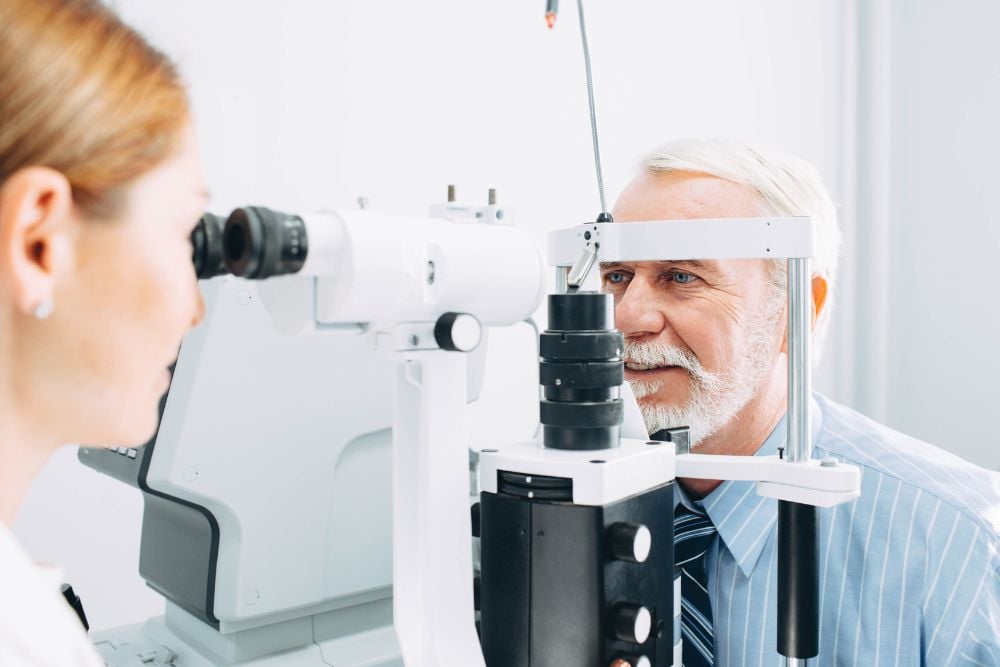Age-Related Macular Degeneration (AMD): What You Need to Know

Age-related macular degeneration (AMD) is an eye disease that can blur central vision. It happens when aging leads to damage to the macula, which is the central part of the retina responsible for allowing you to see fine details of objects in front of you, such as faces and written text. Let’s review what you need to know about AMD, including its types and stages, common symptoms and risk factors, available treatment options, and how to seek guidance from a retina specialist.
The Types and Stages of AMD
There are two types of AMD: dry and wet. Dry AMD is more common than wet AMD, and it occurs as the macula gets thinner with age. There are three stages of dry AMD: early, intermediate, and late. It tends to progress slowly over multiple years.
Wet AMD causes rapid vision loss. Any stage of dry AMD can progress to wet AMD, but wet AMD is always considered a late stage. It occurs when abnormal blood vessels grow in the back of the eye and damage the macula.
AMD Symptoms
In the early stages of AMD, there may not be noticeable symptoms. In intermediate dry AMD, some people may notice vision changes, such as mild blurriness or trouble seeing in low lighting. In late dry and wet AMD, individuals may notice a blurry area near the center of their vision. Over time, the blurry area may get bigger, or they'll begin seeing blank spots. It may be difficult to see in low light, and colors may look duller than before. Additionally, straight lines that look wavy are warning signs for late AMD.
AMD Risk Factors
As you get older, your risk of developing AMD increases. Other risk factors for AMD include having a family history of the condition and being a smoker. If you're at risk for AMD due to your age, family history, or other factors, it's vital to have regular eye exams. This is especially important because the early stages of AMD often don't have noticeable symptoms.
Treatment for AMD
Treatment for AMD depends on which type you have and the stage. Eating healthy, getting regular exercise, and quitting smoking may help slow progression. Special supplements may be able to slow down disease progression or prevent intermediate AMD from turning into late-stage AMD.
For wet AMD, your retina specialist may inject anti-VEGF drugs into the affected eye or recommend photodynamic therapy (PDT), a combination of injections and laser treatment. Research for AMD is constantly ongoing, and patients may be eligible for clinical trials.
Schedule an Appointment Today
The earlier AMD is caught, the sooner you can begin treatment and preserve as much of your vision as possible. At Southeastern Retina Associates, our experienced retina specialists effectively diagnose AMD and work with you to develop a personalized treatment plan. If you suspect AMD, please see your regular eye doctor as soon as possible and they may refer you to our office.
